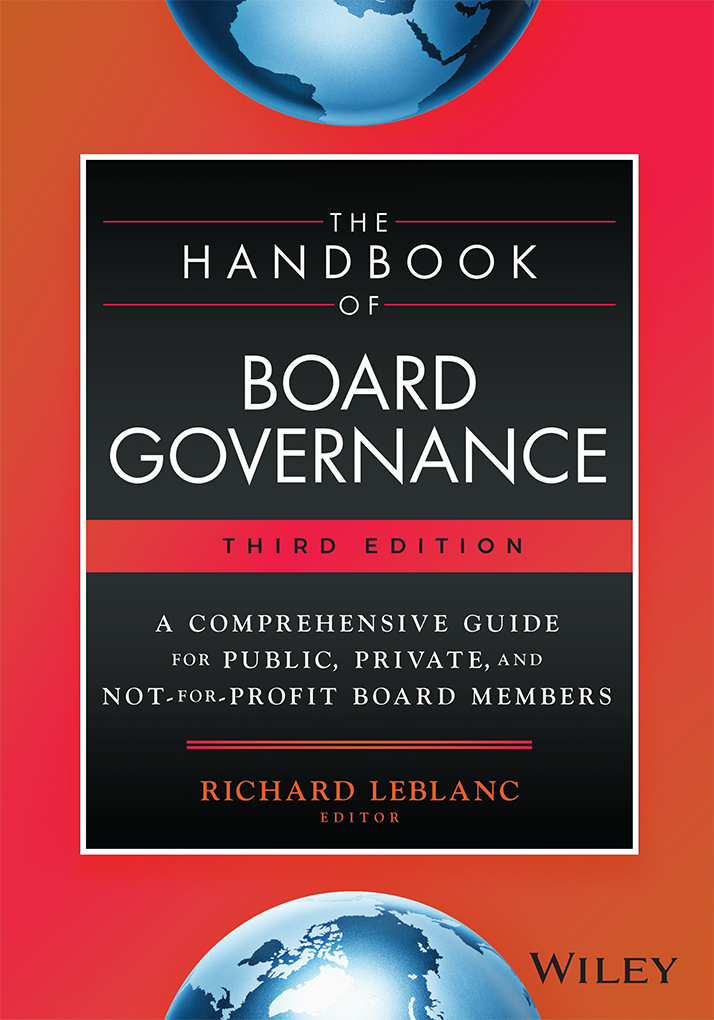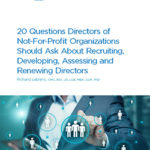I recently trained a group of directors and CEOs from the banking and agricultural sectors in Texas and Arizona. We discussed mutual expectations on the part of the board and management. The following represents the output of these discussions, which could apply to a variety of boards.
What the Board Expects from Management
Here is what a good board is entitled to expect from management, in no particular order:
1. No Surprises or Spin
There should be no surprises for a board. CEOs and senior management need to tell the board the true state of affairs, without the “spin.” Directors know when they are not getting the “real deal” from management. If the CEO manages the board, or holds cards too close to the vest, this is a problem for a board.
2. Bad News Must Rise
The board needs to be the first to know when need be, not the last. Management needs to have systems, processes and incentives that promote full transparency and reporting, right up to the board and its committees. The board needs to be assured of this.
3. Deep Expertise in the Business
The board wants to see expertise across the full management bench, with no gaps. A problem arises when the board sees a weakness with which the CEO does not agree. Some CEOs have had trouble adjusting to a “new normal” of boards opining on C-level positions and oversight functions (e.g., internal audit). If a CEO does not accede to a board preference, this will be a problem.
4. Visibility of Management Thinking
The board should see proposed options from management, including what was rejected and why. Management’s thinking and assumptions need to be fully transparent to the board and open to critique. A red flag occurs when management’s thinking is not visible.
5. Full Information
There should be no information funneling or blockage of any sort. The board is entitled to any piece of information or access to any personnel to do its job. Management should support full information flow, including information that does not support management’s positions.
What Management Expects from the Board
Management, in turn, has expectations of the board. They are:
1. Candor
Directors need to be candid and speak their mind in board meetings, not have hidden agendas, nor speak inconsistently offline. If directors are inconsistent, it can cause a schism in board-management relations and trust. The board should speak with one voice and not send mixed messages to management.
2. Integrity and Independence
Directors cannot be self-interested, nor use their position to self-deal. If a director promotes management capture to occur by currying favor with management, this will undermine management-board relations. Management is entitled to directors preserving their independence and not placing management in compromising positions.
3. Direction
A good –and smart– CEO wants a strong board. A board of directors should direct management as and when necessary to prevent the CEO from making that one big mistake. The board should be in charge at all times and management should know this.
4. React in a Measured Way
If management is to be transparent, the board needs to react proportionately. If there are leaks, or the board is constantly critical, the CEO will not bring ideas or concepts, or his or her real thinking to the board, but only a polished crystal ball for board approval. This tone will cascade to senior management. This could cause governance failure as the board is shut out.
5. Trust and Confidence
Management gets demoralized when they feel the board lacks trust or confidence in them.
If a board does not have trust or confidence in its CEO, it has the wrong CEO. CEOs may react when this happens – “either you have confidence in me or fire me” for example. If the board as a whole lacks confidence in the CEO, the CEO needs to go. If only a small minority of directors do and cause dysfunction as a result, these directors need to go.
6. Knowledge of the Business
Management expects directors to invest the time to understand the business fully, especially if they are not from the sector. Otherwise, these directors will be of limited use to management strategically and their opinions will not be taken seriously nor be credible. Management gets frustrated by dated, legacy directors who have outlived their usefulness. Boards should know when this happens.
7. Meeting Preparation
Management expects each director to arrive fully briefed and ready to discuss and should be able to rely on this. Otherwise, the engagement level degrades and gets sidetracked. The chair of the board should set these expectations and lead by example.
8. Asking Good Questions
Lastly, management knows that the best directors ask the best questions that cause them to really think. If directors have a hobbyhorse, or ask inane questions in the eyes of others around the board-table, their credibility will suffer. These directors should go.
Many of the above topics are not visible from outside a boardroom. Nor can they be, for the most part, regulated. But they all contribute to the quality of the board-management relationship, board decision-making, and whether the organization is well governed.
Posted by Richard Leblanc on Jan 27, 2013 at 5:40 pm in Board-CEO Relations, Relationships and Communication |












